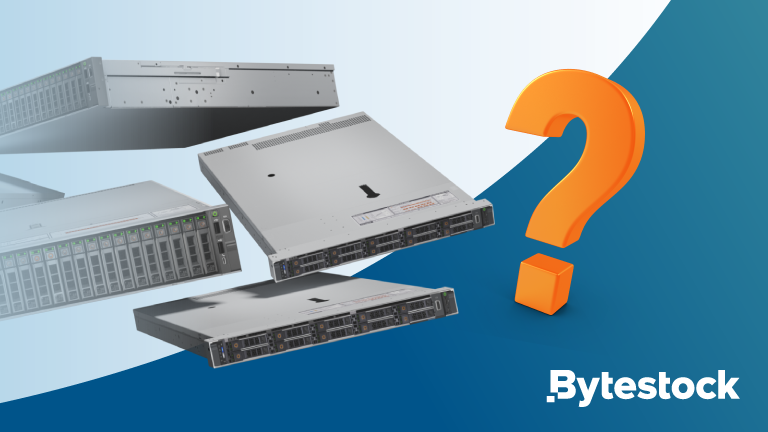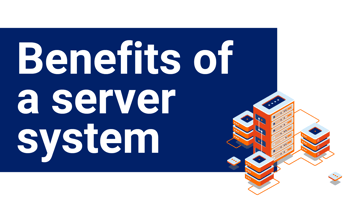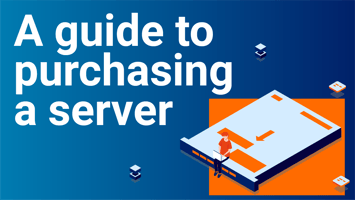In “The Art of War,” Sun Tzu said, “If you know the enemy and know yourself, you need not fear the...
13th vs 14th Generation Servers - What's best for business?

Dell PowerEdge 13th & 14th Generation Servers
Cost-effective and configurable, Dell’s 13th v 14th Generation Servers finds use in a broad variety of applications, from file-sharing, corporate software services, and organisational databases. But which type of server is best suited to you?
Identifying Your Server Needs
Industry jargon can be confusing and unnecessarily wordy. But at Bytestock, we’ll help you find the ideal server for you and your business.
Here are a few things to consider when buying a server:
- Budget
A bit self-evident, but it’s important to consider. A small, lightweight, not too powerful server can cost a few hundred pounds. Whereas a heavier, more powerful server can cost thousands, if not tens of thousands.
- Server requirements
What will your server be doing, what is your need for one? It’s crucial to consider things like RAM, processing power, transfer speed, and storage capacity before making the final decision.
- On-site vs cloud
Weigh out the pros and cons of both choices – on-site servers require set-up and maintenance but are extremely powerful and fast. Cloud servers are certainly more convenient but can sometimes provide slower transfer speeds.
- Pre-built or custom-configured?
Pre-built servers come ready to plug in and use, but they don’t always hold the specifications you need. Custom configurated servers allow you to fully customise and choose exactly what you want guaranteeing precise performance which meets the needs of your business.
- Security elements
Cyberthreats are an all-too-common problem and companies must go to great lengths to safeguard the business. Always check the cybersecurity capabilities on your server before making your purchase so that you’re not caught out further down the line.
Dell 13th Gen Servers
Dell 13th Gen PowerEdge servers were released in late 2014, and include the likes of the R730XD, R730, and R630. These servers have a range of innovative features that can take your data centre to the next level.
Speed – The I/O virtualisation options give better access to internal bandwidth and dynamically allocate it in real-time. Choose where your data centre runs most efficiently and quickly to keep up with intensive applications.
Accessibility – The iDRAC 8 quick sync gives access to servers using near field communications meaning you can access servers remotely through mobile devices.
Dell 14th Gen Servers
Dell 14th Gen PowerEdge servers were released in 2017 including the likes of the R440, R740XD, T440, T640, and C4140, providing a slight speed boost and some brand-new storage configurations.
System Management - With the help of the iDRAC 9, 14th Gen servers can provide up to four times better management and a connection view, troubleshooting errors much quicker than 13th Gen servers can.
Sustainability – With increased airflow and reduced electrical toll, the front mesh helps improve its environmental footprint to no end.
Finding a server for your Data Centre
After weighing up the pros and cons of both the Dell 13th and 14th Generation servers, it’s time to decide which system will best suit your business’s needs.
No matter what choice you make, both generations can provide an amazingly robust architecture to service your needs. A 13th Gen can provide a lot of the functionality, while a 14th Gen server has a lower ongoing cost. If your data centre is utilising a lot of different applications that put excessive amounts of stress on your machine, a 14th Gen is the safest option for the robust ability to troubleshoot unforeseen errors.
Now you know the difference between Dell’s 13th v 14th Generation Servers, head over to the Bytestock site to find your ideal server system or speak to one of our experienced, dedicated account managers today for more information.





